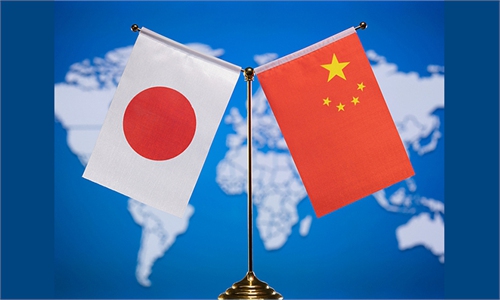
A dragon dance team formed by locals performs at a parade in Yokohama Chinatown, Japan, on May 28, 2022. Photo: VCG
This year marks the 50th anniversary of the normalization of China-Japan relations. Analysts and observers pointed out that this important point in time provides an important opportunity for the two sides to review history and shape the future together.
China and Japan are partners and pose no threat to each other, and the political consensus should be implemented in policies, Chinese State Councilor and Foreign Minister Wang Yi said in a video speech to a forum held on Monday to commemorate the 50th anniversary of the normalization of China-Japan relations.
Five decades ago, leaders in both countries overcame numerous disturbances and made the political decision to normalize China-Japan ties, opening a new page in the history of bilateral relations, Wang said, noting that currently, the two countries should revisit the original intention of establishing diplomatic relations, learn from historical experience, and promote the healthy and stable development of China-Japan relations along the right track.
At present, the significance and achievements of China-Japan relations have attracted more attention from the world.
In the political field, the four political documents between China and Japan In the political field, the four political documents between China and Japan, which refer to the China-Japan Joint Statement inked in 1972, the China-Japan Treaty of Peace and Friendship of 1978, the China-Japan Joint Declaration of 1998, and a joint statement on advancing strategic and mutually beneficial relations in a comprehensive way that was signed in 2008, have set out principles on how to deal with history, the Taiwan question, and other major sensitive, which constitute the political foundation of bilateral relations and set the general direction of peace, friendship, and cooperation between the two countries.
In terms of security, China and Japan have shared 50 years of peace. Analysts point out that the normalization of diplomatic relations ended the antagonism between China and Japan, starting the process of peaceful development of relations between the two countries, and made an important contribution to the maintenance of peace in Asia and in the world in general.
Through four political documents and the diplomatic efforts, China and Japan have overcome many of the occasional frictions. Unfortunately, at present, Japan is the lead of certain countries in interfering in China's sovereignty and security, which has worsened political mistrust, Da Zhigang, director of the Institute of Northeast Asian Studies at Heilongjiang Provincial Academy of Social Sciences, told the Global Times.
"For China, to maintain stability and security in the regional neighborhood, to break new ground, and promote regional economic diplomacy on the basis of the four political documents in the spirit of 'taking history as a mirror and looking forward to the future,' Japan should be reflective of such actions," said Da.
Da also stressed that over the last 50 years, bilateral relations have kept moving forward despite twists and turns, while the friendship in the fields of economy, culture, science and technology, and joint participation in global governance has also promoted the development of official relations.
On the economic front, China has been Japan's largest trading partner for 15 consecutive years. According to China's Foreign Ministry, Japan's imports from and exports to China account for more than 20 percent of Japan's foreign trade.

People visit the Japanese goods exhibition area at the 2022 China International Fair for Trade in Services in Beijing on September 3, 2022. Photo: VCG
In 2021, China-Japan bilateral trade increased to $371.4 billion, more than the sum of trade volume between Japan and its second to fourth largest trading partners. More than 30,000 Japanese companies have invested and operated in China, with annual revenues of up to $500 billion. At the same time, China and Japan have established more than 250 pairs of friendship provinces and cities. The number of people travelling between the two side had increased to 12 million before the COVID-19 pandemic, with the number of Chinese mainland residents visiting Japan approaching 10 million, accounting for more than 30 percent of the total number of foreigners visiting Japan and 36.8 percent of consumption.
At the same times, cultural exchanges between the two countries have yielded fruitful results in fields such as literature, art, film, and theater, strengthening the two sides' cultural ties that have lasted for two thousand years and enriching the lives of the people in both countries in modern times.
"China-Japan relations go beyond ordinary bilateral relations," Da said. For five decades, geopolitical complexity, such as regional frictions between the two countries, and incitement by external forces have both tested people-to-people exchanges. However, the Japanese people are also keenly aware that China is a neighbor they cannot move away from, and the interdependence between China and Japan in terms of economy and people's wellbeing is becoming more and more obvious, he noted.




